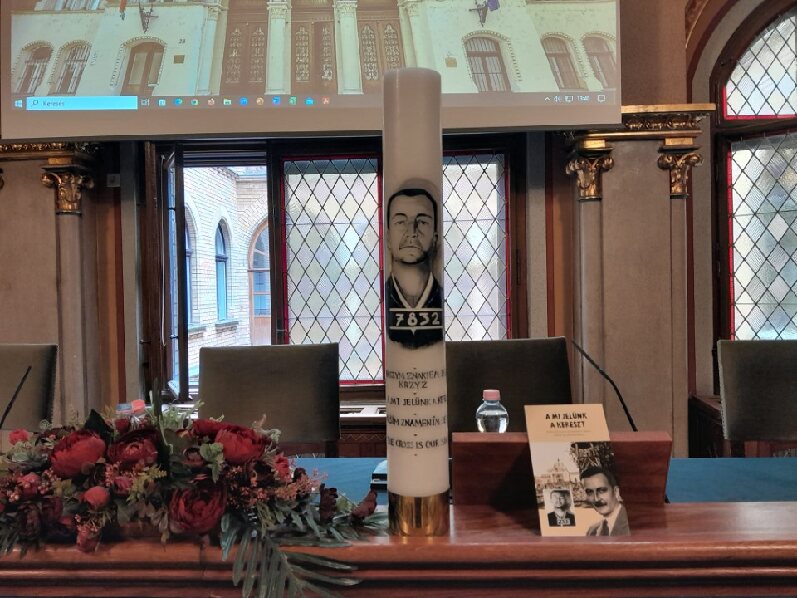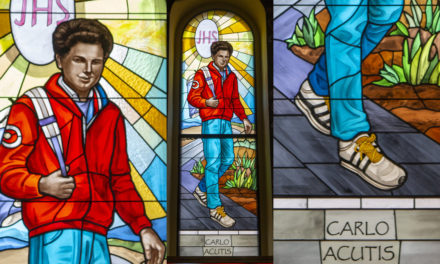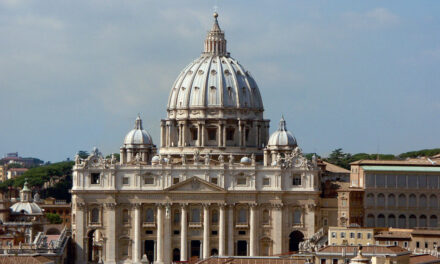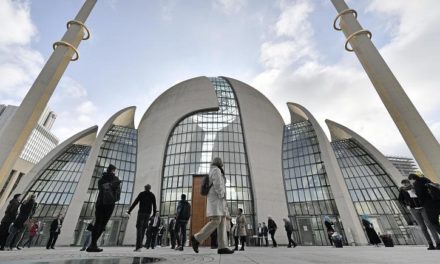In Budapest, Pázmány Péter Catholic University Szent II. An all-day conference honoring János Esterházy was organized in the hall of János Pál under the title Community forgiveness and reconciliation in the light of the life work and martyrdom of János Esterházy.
The event was based on the themes of peace, the possibility and form of reconciliation between peoples, the virtue of forgiveness, healing the wounds of the past, and the institutional sources of reconciliation. Through Esterházy's life, each speaker told how much of a divine, Christ-like guiding line there was for his work, perseverance, and later his martyrdom, citing the stages of his life for each topic.
The conference of Msgr. Domenico Battaglia of Naples. His presentation entitled "Dialogue between individuals and communities and the service of peace with the means of pastoral care" emphasized the coordination of the topic and community building in everyday life. The most important human element in this is humility, willingness to serve and help.
Raising and helping weak, abandoned people is the most obvious manifestation of Christ's love.
He gave examples of the period of his life where he saved the lives of young people and the elderly who were sinking to the bottom in his arms and helped them through to the final hopeful journey.
In his presentation entitled "Love of the nation, justice and "community of destiny" are the foundations of lasting peace and reconciliation between peoples according to the servant of God János Esterházy", the Italian Fra Ambrogio Maria Canavesi analyzed the political example of Count János Esterházy.
spoke in the papers . Babčanová is the former Slovak ambassador to the Vatican, the only person who stands by János Esterházy's faith and message of preaching truth. He already emphasized this at the Alsóbodok Pilgrimage Site during the commemoration days.
Analyzing from a Slovak point of view, he condemns the negative statements about János Esterházy. He believes that this must change for the sake of mutual peaceful coexistence.
Fr. Pawel Cebula OFM Conv. he gave his opinion from a Polish point of view, who has been his faithful caretaker from the beginning of the beatification both in Hungary, where he serves, and in his homeland.
Gregorz Górny described the rapprochement of the two nations under the title "The Reconciliation Process Initiated by the Polish-German Bishopric (1965)".
During the round table discussion, two parish priests from the Highlands, dr. Gábor Bertalan from Szepsi and Krisztián Bozay from Dunaszerdahely shared their experiences and thoughts.
László Surján , the apostle of the reconciliation of the two nations, used the example of János Esterházy's life to advocate for reconciliation.
Deacon Zoltán Kunszabó testified "I feel that the Holy Spirit is leading us to the fact that just as our ancestors fought together with swords for centuries, we must fight together in prayer for the spiritual protection and conversion of our nations and Europe."
Zoltán Balga described the peaceful coexistence of Hungarians, Slovaks and Czechs in Prague, both in civil and religious life.
The closing summary was given by SER mons. Dornenico Battaglia of Naples, who also blessed the participants of the conference.
The leitmotif of the conference was reconciliation, forgiveness, truth-telling, mercy, grace, and reconciliation, and this should guide all of us.
Truth has a face, and they want to take that face away from us.
Judgment has no face. This is also reflected in the example of János Esterházy.
János Esterházy didn't accept suffering, but standing up, and that's why he suffered!
Source: Felvidék.ma/ Erzsébet Dániel
Cover photo: János Esterházy Pilgrimage Center













